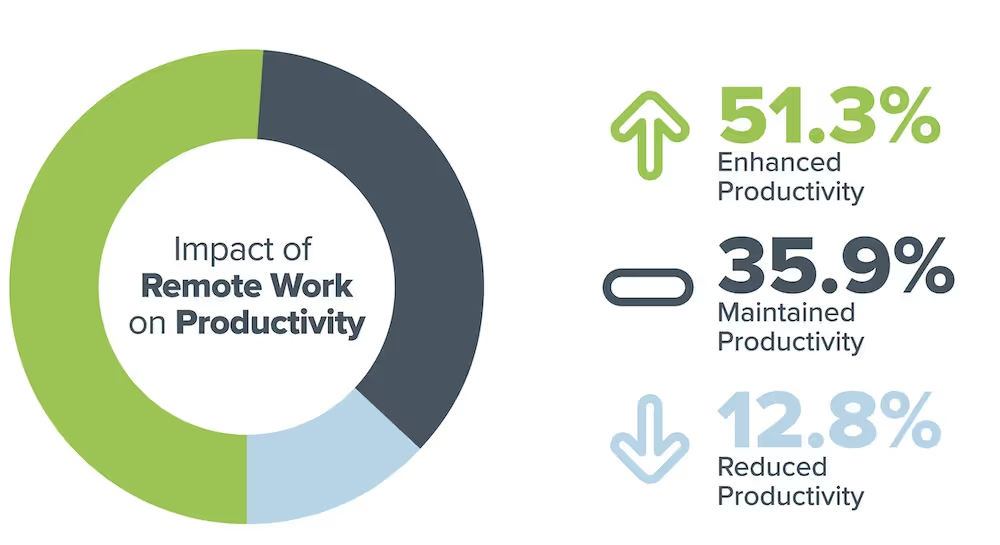The global demand for remote developers has dramatically increased over the past several years. On average, people who work from home are 10 minutes less unproductive each day, work an extra day per week, and are 47% more productive. However, for many developers, working from home can be a challenge as they may experience distractions at home, have issues with time zone adjustments with their clients, or are unable to get their hands on the right equipment to work from home. Therefore, it is vital for remote developers to create a comfortable workspace at their homes or have a separate office space from where they can carry out their tasks. Such spaces should not have distractions so the developers can stay productive and focused. LATAM remote developers can also use our guide to keep up with the time zone differences that they may have to deal with when working with their clients in the US. In this blog post, we elaborate on 10 productivity hacks that remote developers can benefit from to enhance their experience of working from home.

Aside from using the right tools, remote workers and their remote teams can work more efficiently using the hacks that are listed in this blog post. Experts at Blue Coding carefully curated this list after in-depth research on various factors that affect the WFH performance of software developers.
Creating a dedicated workspace involves more than just designating a physical area; it's about cultivating an environment conducive to productivity. Consider factors like lighting, comfort, and organization. Invest in a comfortable chair, proper lighting, and storage solutions. Personalize your space with motivational items to make it an inviting and inspiring place for work. This designated area signals the beginning and end of the workday, helping remote developers mentally transition into and out of their professional roles.
Setting clear goals requires breaking down overarching objectives into specific, achievable tasks. Use project management tools or simple to-do lists to outline daily and weekly goals. Prioritize tasks based on urgency and importance. This strategic approach empowers remote developers to focus on high-priority items first, ensuring that critical deadlines are met and fostering a sense of accomplishment throughout the workweek.
Time management techniques like time-blocking involve allocating specific time slots for different activities, providing structure to the workday. The Pomodoro Technique encourages focused work intervals, typically 25 minutes, followed by short breaks. Experiment with these techniques to discover what works best for your personal workflow. Regularly reassess and adjust your time management strategies to optimize productivity and maintain a healthy work-life balance.
Collaboration tools are integral to remote development teams. Beyond the basics of communication, these tools facilitate document sharing, version control, and project tracking. Familiarize yourself with the advanced features of collaboration platforms to maximize their effectiveness. Regularly engage in virtual meetings, utilize chat channels for quick queries, and explore integrations that streamline workflows, enhancing overall team collaboration.
Understanding the intricacies of version control systems like Git is crucial for collaborative coding projects. Delve into branching strategies, merging techniques, and conflict resolution to ensure a smooth collaborative coding experience. Regularly commit changes, provide descriptive commit messages, and stay vigilant about branch management to maintain a coherent and error-free codebase.
Scheduled breaks are not just opportunities to step away from your screen; they're essential for maintaining cognitive function and preventing burnout. Incorporate activities that relax and rejuvenate you during breaks, such as stretching exercises or a short walk. Experiment with different break durations and activities to find a rhythm that supports sustained focus and creativity throughout the workday.
Minimizing distractions requires a proactive approach. Create a focused work environment by turning off non-essential notifications, setting specific work hours, and using productivity apps that limit access to distracting websites during designated work periods. Communicate your work hours clearly to family members or housemates, establishing boundaries to minimize interruptions and enhance concentration.
Investing in ergonomic equipment goes beyond the basics of a good chair and desk. Consider ergonomic keyboard and mouse options, monitor positioning, and even standing desk converters. Regularly assess your ergonomic setup to address any discomfort or strain. A comfortable workspace promotes physical well-being, reducing the risk of repetitive strain injuries and contributing to sustained productivity over the long term.
Continuous learning involves actively seeking opportunities to expand your skill set and stay abreast of industry trends. Explore online courses, webinars, and industry forums to stay informed about the latest tools, languages, and development methodologies. Engage in coding challenges or contribute to open-source projects to apply and reinforce your learning. Embrace a growth mindset, viewing challenges as opportunities for skill development and improvement.
Regular reflection and evaluation are crucial for personal and professional growth. Take time to assess your productivity strategies, identifying what works well and areas for improvement. Seek feedback from colleagues or mentors, and be open to adjusting your approaches based on insights gained. This reflective practice fosters adaptability and ensures that your productivity strategies evolve to meet the changing demands of remote development.
With the above productivity hacks, we ensure that remote developers will be able to function at the most efficient level. At Blue Coding, we train our developers to work efficiently and at a pace that they are comfortable with using our remote developer onboarding guide. Our developers are also provided with a remote work checklist which allows them to prepare for work as remote developers. If you are a software development experts who wishes to work from home, you can feel free to apply with Blue Coding! For any more queries, you can contact us at anytime and we will be there to assist you.
Subscribe to our blog and get the latest articles, insights, and industry updates delivered straight to your inbox